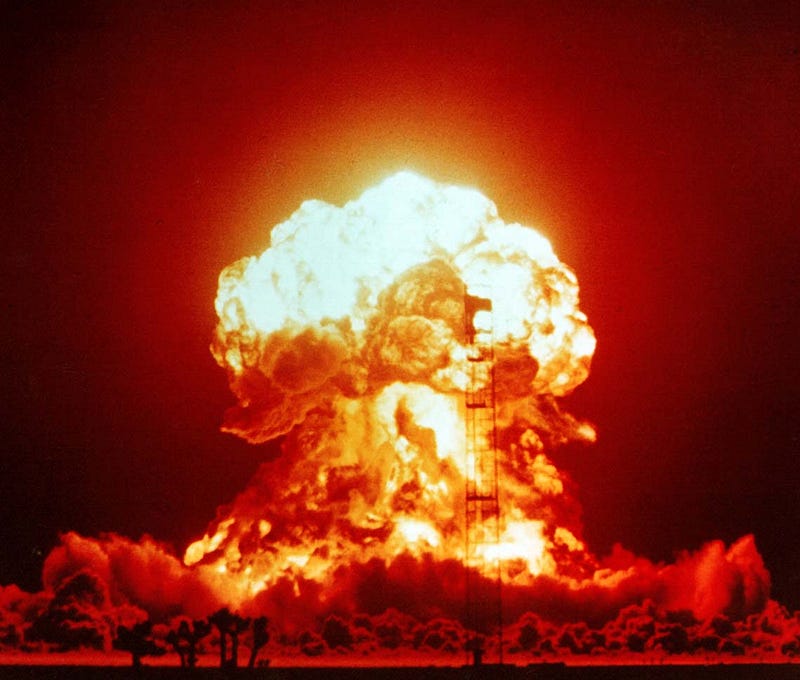Putin's Nuclear Threats: How a Chinese Ally Defused Tensions
Written on
Chapter 1: The Context of Putin's Nuclear Threats
Putin's military actions in Ukraine have been widely regarded as a significant blunder. Russian leadership, fueled by rampant propaganda, believed they could quickly capture Kyiv and take control of Ukraine in a matter of days. However, Ukraine has shown remarkable resilience, successfully defending against Russian advances for months. This prolonged conflict has revealed the vulnerabilities of the Russian military, putting Putin in a precarious situation. He faces the dilemma of either withdrawing his forces, which would be perceived as a surrender, or continuing the conflict, risking backlash from a weary Russian populace. Historically, the Russian people have not hesitated to remove leaders who fail them.
In an attempt to regain leverage, Putin has resorted to threatening nuclear escalation if NATO persists in supporting Ukraine. Fortunately, this threat has lost its potency, and here's why.
Section 1.1: The Nature of Russia's Nuclear Arsenal
The prospect of Russia deploying nuclear weapons in Ukraine is a serious concern. Putin's recent threats should be regarded with caution. While Russia possesses formidable Intercontinental Ballistic Missiles (ICBMs) armed with hydrogen bombs, their application in the current conflict is questionable. Instead, Russia has tactical nuclear weapons, which are significantly smaller (1-50 kilotons) than the 800-kiloton ICBMs. For perspective, the bomb dropped on Hiroshima was approximately 15 kilotons. These tactical weapons are designed for short-range use, capable of being launched from artillery or small missiles, allowing Putin to target Ukrainian forces with precision.
But would NATO not retaliate if such a strike occurred? Certainly, but NATO is hesitant to initiate a nuclear confrontation. For instance, France has indicated that it would not respond with nuclear weapons if Russia were to employ them in Ukraine. This gives Putin a calculated option to use nuclear force, potentially bringing a swift end to the conflict while facing only conventional retaliation from NATO.
Subsection 1.1.1: The Role of Xi Jinping

Section 1.2: The Impact of China's Position
Although the threat remains, the actual risk of nuclear engagement has been considerably mitigated by an unexpected ally—Xi Jinping, President of China. Xi's firm stance against the use of nuclear arms has significantly undermined Putin's threats. He openly declared that the international community must unite against the use of nuclear weapons, explicitly stating that they should not be utilized in the Ukraine conflict. This clear and public condemnation from China serves to diminish the credibility of Putin's nuclear posturing.
Chapter 2: The Economic and Military Dynamics
The first video, Are Putin's red lines serious nuclear threats or blackmail? | DW News, examines the implications of Putin's nuclear threats in the context of international relations.
The second video, Putin's nuclear threat: Russia is ready to use nuclear weapons if statehood is threatened, discusses the potential consequences of these threats on global stability.
China's relationship with Russia extends beyond mere military alliance; it is essential to Russia's economy. However, this partnership is heavily skewed in China's favor, meaning that a rupture in their alliance would have minimal repercussions for China but could devastate Russia's already fragile economy. In 2019, China accounted for 15.5% of Russia's trade, while Russia made up a mere 0.8% of China's trade. Thus, should China choose to distance itself from Russia, the latter would face economic collapse.
Furthermore, Russia's military capabilities rely significantly on Chinese support, from technology sharing to joint exercises. With China’s military budget far surpassing Russia's, a loss of this partnership would be detrimental to Putin's military ambitions.
As China grapples with its own economic challenges, it is increasingly aware of the need to maintain strong ties with Western nations. The potential for a housing market collapse looms over China, making it imperative for Xi to prioritize economic stability. This necessity might explain why Xi has publicly criticized Putin’s nuclear threats and avoided escalating tensions with Taiwan.
In summary, while Xi Jinping has a controversial reputation, his denunciation of Putin's nuclear rhetoric has played a crucial role in alleviating the threat of nuclear conflict. It remains to be seen how Putin will respond to this pressure from his ally, but for now, there is a sense of cautious optimism that the world may be a slightly safer place.